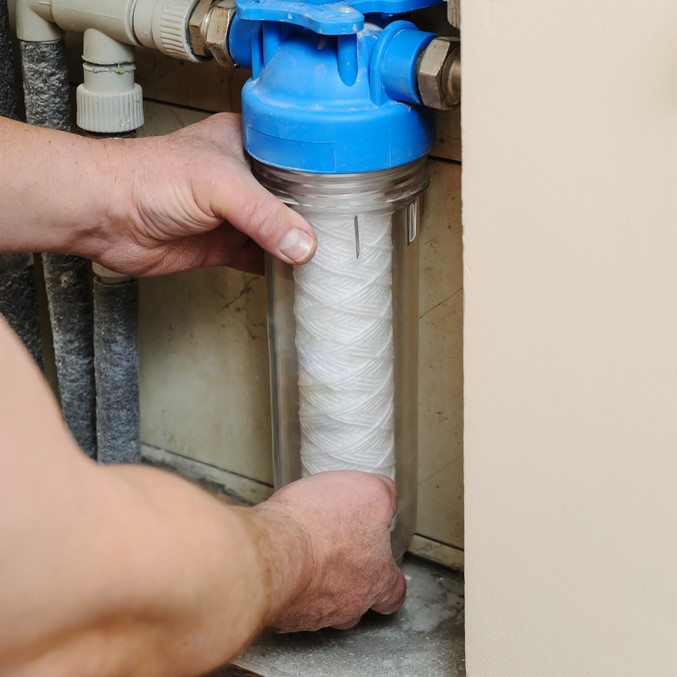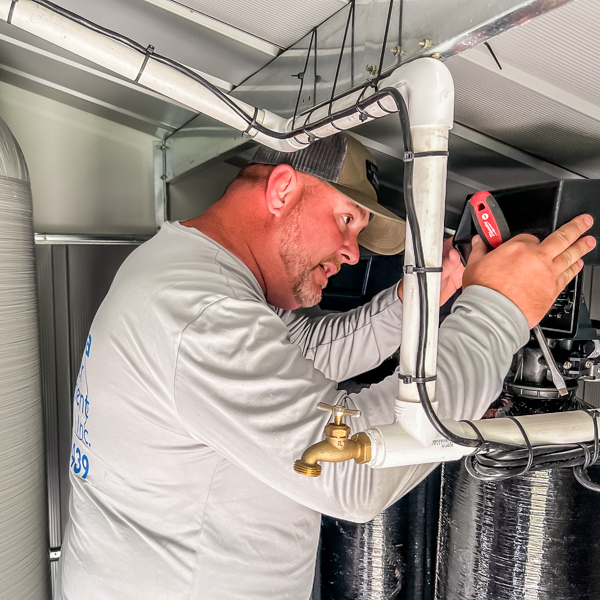Do I Need a Filter if I Have a Water Softener?
One of the most common complaints people have regarding tap water is the mineral content, which can leave stains, clog pipes and fixtures, and make washing and bathing a chore. Many homeowners invest in a water softener to deal with hard water but wonder whether they also need a water filter.
Water softeners and filters serve different purposes, and in this post, we’ll look at why you should consider adding a water filter to your existing water softener.
 What’s the Difference Between a Water Filter & Water Softener?
What’s the Difference Between a Water Filter & Water Softener?
Many people think water filters and softeners are the same things when they’re entirely different.
A water filter is a device that cleanses water by removing impurities from it. In contrast, a water softener is a device that changes the properties to remove the minerals, softening it.
Most residential water filters usually use reverse osmosis to remove impurities from water. This process forces water through a semi-permeable membrane, which eliminates most of the water’s dissolved minerals and other impurities. On the other hand, water softeners do not remove any impurities from the water. Instead, they change the properties of the water so that it is less likely to cause scale build-up on surfaces or in pipes.
One of the key differences between water filters and softeners is that water filters can remove a wider range of impurities from water than water softeners. Water filters can remove dissolved minerals, bacteria, viruses, and other pollutants from water, while water softeners can only reduce the water’s mineral content. Moreover, if you find your tap water smelling or tasting bad because of the chlorine and other impurities, a water softener won’t be much help.
Which System Should I Get?
Now that you know the differences between a water softener and a water filter, you’re probably wondering which one is right for you or if you’d be better off with both. There’s no one answer for every situation, but let’s look at the reasons to consider installing each system.
Water Taste & Impurities
If you’re concerned about harmful bacteria and contaminants in your water, chlorine, lead, or you don’t like the taste, you’ll be happy installing a water filter. Installing a whole-home water filter ensures your family gets the cleanest, healthiest drinking water possible and saves you money from buying bottled water. Water filters also remove chlorine, which gives tap water its unpleasant taste and odor, making it tastier to drink.
Scale & Mineral Buildup
If you’re happy with your tap water’s taste and are sure it’s safe but don’t like the clogged pipes, damaged appliances, and scale residue that results from hard water, a water softener is the best solution. Using a water softener reduces the mineral deposits in your pipes, meaning fewer clogs; extends the lifespan of many water-based appliances; leaves your hair, skin, and clothes cleaner; and prevents spots from forming on your kitchenware after washing.
Choosing the best system for you depends on what you want to achieve. If safer, better-tasting water is your goal, go for a water filter. If hard water is an issue, a water softener is the best choice.

However, just because you select one system doesn’t mean you can’t have both. Many homeowners use a pre-filter with their water softener to get both benefits. If you’re still unsure which is right, consult a water treatment professional and get your water tested.
Contact Tri-Florida Water Treatment
Tri-Florida Water Treatment is a Department of Environmental Protection Certified water plant operator. We service and sell water softeners, filters, and purification systems. We have over 30 years of experience, and our technicians are highly trained experts in the field.
Call us today at 863-965-1439 and ask about a water test and find out how we can make your tap water clean, healthy, and safe.
